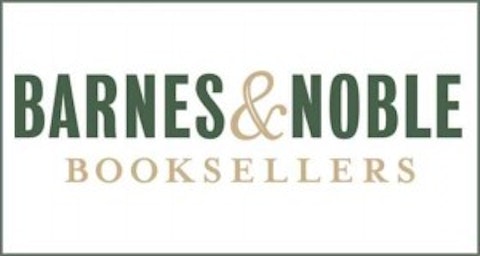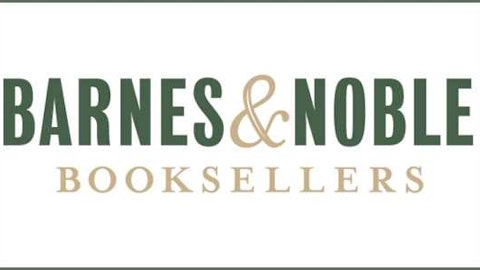In today’s technologically advanced world, e-books are all the rage. After all, they are certainly more convenient than plain old fashioned books, and are usually cheaper. That being said some people, myself included, find that physical books have a certain charm that digital ones will never be able to replicate. I have always dreamed of assembling a library of my own favorite books. To start making that dream a reality, I recently paid a visit to Barnes & Noble, Inc. (NYSE:BKS).

How Barnes and Noble makes, and loses, money
Barnes & Noble, Inc. (NYSE:BKS) operates in three segments. Retail is by far the largest segment, accounting for over two-thirds of revenue. About 25% of revenues come from agreements Barnes & Noble has struck with colleges to operate the bookstore on campus.
Then finally there is the Nook division, which has been hemorrhaging money. The following chart details just how harmful the Nook business has been to Barnes & Noble, Inc. (NYSE:BKS) since its inception in November of 2009. (Note that fiscal years here are as Barnes & Noble presents them in their annual reports, meaning they end in April)
| Year | Operating Profit (Loss) |
| 2013 | ($199.6 million) |
| 2012 | ($286.3 million) |
| 2011 | ($229.7 million) |
| 2010 | ($106.1 million) |
Wow, that is one terrible segment! For the year ended April 2011, sales for the Nook segment were up 589.1%, and losses more than doubled! Whenever a sales increase like that correlates with bigger losses, in any segment anywhere, management ought to give serious thought to ceasing those operations. And I’m sure management at Barnes & Noble, Inc. (NYSE:BKS) has spent long hours pondering doing just that.
Why the Nook is failing
Barnes & Noble, Inc. (NYSE:BKS) is getting absolutely obliterated in the battle for e-reader supremacy by the juggernaut that is Amazon.com, Inc. (NASDAQ:AMZN). In the latest quarter sales of Nook sales were down 34%. Meanwhile, Amazon.com, Inc. (NASDAQ:AMZN)’s immensely popular Kindle has actually been gaining market share in the immensely competitive tablet market.
One possible reason the Nook is failing so badly is its inherent inferiority to other tablets out there. While they doesn’t move at a snails pace, the processors in e-readers are much slower than those in a traditional tablet. The Nook also has no built in web browser (the kindle fire does). Apparently most people would much rather shell out more money for a tablet instead of just buying an e-reader.
Finally, Barnes and Noble’s advertising muscles look puny, downright pathetic, compared to Amazon’s. The main place Barnes and Noble advertises its e-reader is in physical book stores, something people just don’t seem to be visiting as often anymore. They would much rather just buy books, physical or electronic, off of the internet, and we all know where they go to do that.
Getting cozy with Microsoft Corporation (NASDAQ:MSFT)
The decision management at B & N has reached regarding the Nook was to partner with Microsoft Corporation (NASDAQ:MSFT) and spin the Nook and college bookstore divisions off into a separate enterprise.
Microsoft paid $300 million for a 16.8% stake in this new business, with the remainder being controlled by Barnes & Noble. I have no idea why Microsoft would pay so much for a division that has performed so poorly. In my eyes its a desperation move, one that brings the Peter Lynch term “diworsification” to mind.
Competition is eating the Nook alive. In my eyes Microsoft is trying so save a ship that so obviously seems like it should be abandoned. The only reason I could think of is the college bookstores, they provide Microsoft with invaluable access to a highly educated crowd of young people.
What Barnes does best
Without a doubt I would absolutely love to, through the purchase of common stock, become an owner in the Barnes & Noble stores that I have had the good fortune of visiting. Barnes and Noble’s filings on EDGAR tell me that while the retail segment’s revenues have not been going much of anywhere, margins are on the rise. See for yourself:
| Year | Revenues | Gross Profit | Gross Margin |
| 2013 | $3.62 billion | $1.13 billion | 31.2% |
| 2012 | $4.85 billion | $1.45 billion | 29.8% |
| 2011 | $4.93 billion | $1.43 billion | 29.0% |
| 2010 | $4.95 billion | $1.56 billion | 31.6% |
All right, here’s a segment that’s not so bad after all! 2013 revenues seem a bit low but remember there is one quarter of Barnes and Noble’s fiscal 2013 that has yet to be reported. Margins collapsed over two percent between 2010 and 2011, but have been trending upward ever since. Barnes and Noble is pretty darn good at doing what they do best, and that happens to be peddling books.
Final Foolish Thoughts
I think Barnes and Noble would be an excellent company, if only it weren’t for that awful Nook division! While Barnes and Noble is spinning off the Nook and its college bookstores, it is maintaining majority ownership of this new entity.
With a degree of disappointment I have come to the decision that I don’t want to own Barnes and Noble as long as they own a substantial amount of Nook Media LLC. The college bookstores seem like a decent asset, but trying to complete with Amazon in the e-reader business is asking to get your butt kicked.
It is with a heavy heart that I have to reject Barnes and Noble. I love the experience of being in one of their retail stores. If I could purchase just the retail business for a reasonable price, which the $950 million dollar market cap of B&N certainly is, I would do so in a heartbeat. But until Barnes and Noble makes doing what it does best its only focus, I’m staying far far away.
Fool blogger Ryan Palmer has no positions in any of the stocks mentioned. The Motley Fool owns shares of Microsoft.
The article Betting on America’s Biggest Bookseller originally appeared on Fool.com and is written by Ryan Palmer.
Ryan is a member of The Motley Fool Blog Network — entries represent the personal opinion of the blogger and are not formally edited.
Copyright © 1995 – 2013 The Motley Fool, LLC. All rights reserved. The Motley Fool has a disclosure policy.




